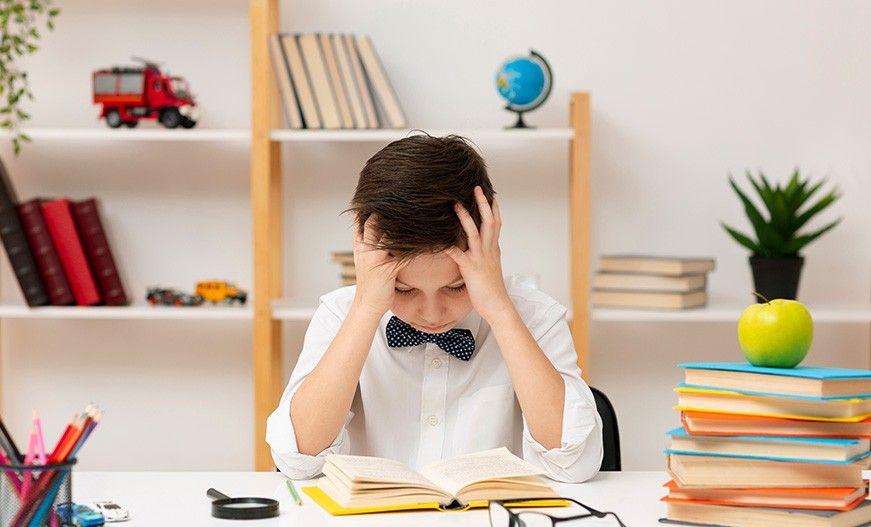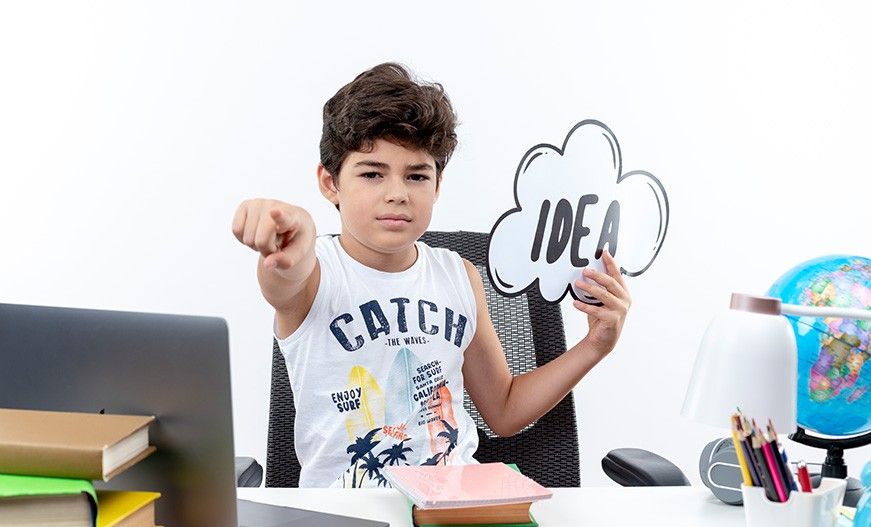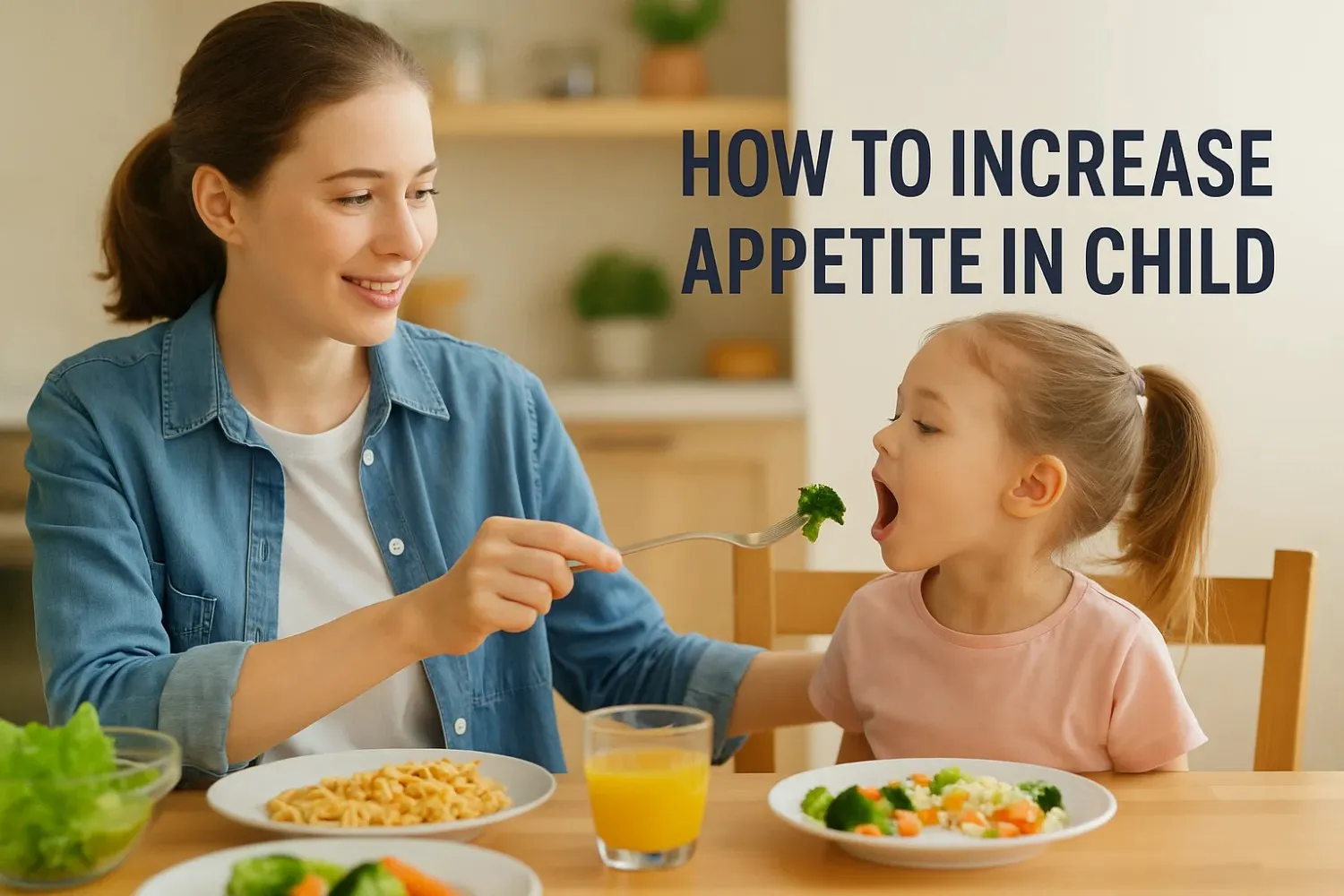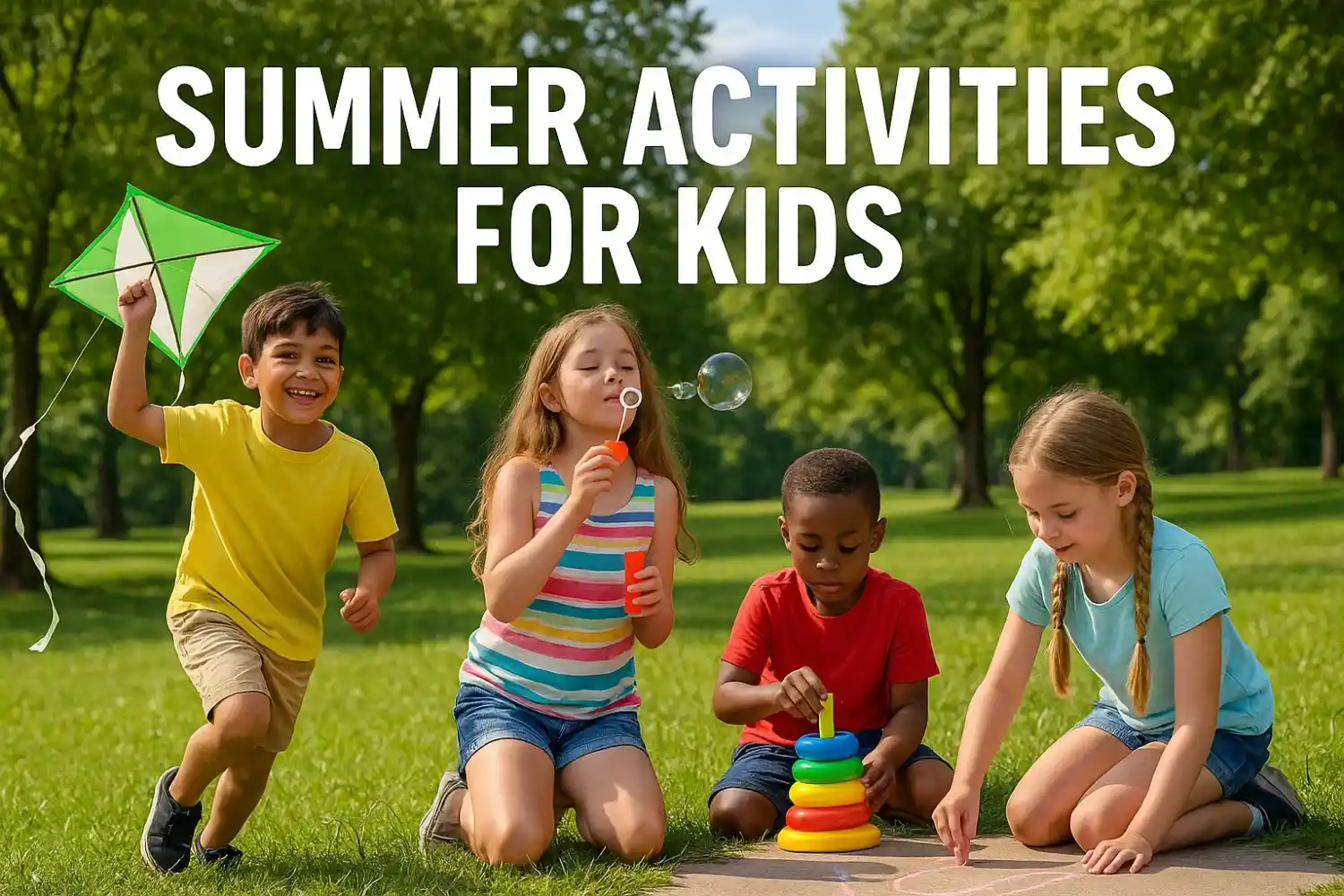Currently Empty: ₹0.00
ADHD in Kids

Written By: Pinky Kharata
Published By: Satya Narayan Pandey
Every child is full of energy, but some kids struggle more than others to focus, sit still, or control impulses. ADHD (Attention- Deficit/ Hyperactivity Disorder) is a brain condition that affects how kids pay attention. It gets difficult for them to manage their behaviour. It is not just about being active as it impacts learning, friendship, and daily life.
If a child seems easily distracted, overly energetic, or impulsive, they might have ADHD. It is important for parents to understand the signs and getting the right support early can make a big difference in helping them succeed. Now lets break down ADHD in kids in a simple way from causes to symptoms.
What is ADHD in Kids?

ADHD is a condition that affects how a child thinks, focuses, and reacts. It’s more than just being restless or having trouble listening. Kids with ADHD may struggle with staying on task, following instructions, or managing their emotions. Some may seem lost in their own world, while others are constantly moving.
Causes of ADHD in Children
ADHD isn’t caused by bad parenting or too much sugar. Research suggests a mix of genetic, environmental, and brain-related factors. If a parent has ADHD, their child is more likely to have it too. Brain differences, especially in areas that control attention and impulse control, play a big role.
Exposure to toxins like lead or prenatal issues like smoking during pregnancy can also increase the risk. Some studies link premature birth and low birth weight to ADHD. While the exact cause isn’t fully known. It’s clear that ADHD is a complex condition influenced by multiple factors.
What are the Signs of ADHD in Kids?
ADHD symptoms show up in different ways. Recognizing the signs early helps in getting the right support. The symptoms usually fall into three main categories: inattentive, hyperactive, and impulsive.
1. Inattentive

Kids with inattentive ADHD find it hard to focus. They may get distracted easily, forget tasks, or lose things often. They struggle to follow instructions, making schoolwork challenging. They may also avoid activities that require a lot of focus, like reading or solving puzzles. Their minds often wander, making it difficult to stay on track with daily routines.
2. Hyperactive

Hyperactive kids can’t seem to sit still. They fidget, tap their hands, and move constantly. In school, they may leave their seats often or talk excessively. They find quiet activities difficult and are always on the go.
3. Impulsive

Impulsive behavior means acting without thinking. Kids with ADHD may interrupt conversations, blurt out answers, or struggle to wait their turn. They might grab things from others or take risks without considering the consequences.
ADHD Symptoms in Toddlers
ADHD signs can appear as early as preschool. Toddlers with ADHD may be constantly active, unable to sit through a story, or frequently interrupt conversations. They may have trouble following simple instructions, jump from one activity to another, and act without fear.

While all toddlers are energetic and curious, ADHD-related hyperactivity is more intense and persistent. Sleep issues, tantrums, and difficulty with transitions are also common. If these behaviors seem extreme and affect daily life, it might be worth discussing them with a doctor. Early support can make a big difference in a child’s development.
Related Conditions in Children
Many kids with ADHD also experience other conditions that affect learning and behavior. Some conditions share similar symptoms, making ADHD harder to diagnose.
1. Oppositional Defiant Disorder (ODD) – Children with ODD often argue with adults, refuse to follow rules, and have frequent angry outbursts. They may be easily annoyed and intentionally push boundaries.
2. Anxiety Disorders – Some kids with ADHD also experience anxiety. They may worry excessively, avoid certain situations, or struggle with separation from parents. Anxiety can make focusing even harder.
3. Learning Disabilities (LDs) – Kids with LDs struggle with reading, writing, or math, even when they try hard. Their brains process information differently, making schoolwork frustrating and time-consuming.
4. Sensory Processing Disorder (SPD) – Kids with SPD are highly sensitive to sounds, textures, or lights. They may dislike certain clothing, get overwhelmed in noisy places, or seek out intense physical movement to feel calm.
When To See A Doctor

If a child’s behavior seems extreme, affects school, or causes trouble at home, it’s time to see a doctor. Occasional distraction or hyperactivity is normal, but persistent struggles may signal ADHD. A doctor or specialist can assess symptoms and recommend next steps. Early diagnosis leads to better management and support.
Conclusion
ADHD is a real condition that affects daily life. Understanding the signs, causes, and related conditions can help children get the right support. With patience, encouragement, and the right strategies, children with ADHD can grow into confident, capable individuals who thrive in their own unique ways. Raising awareness and understanding ADHD can help create a more supportive environment for these kids to succeed.
ADHD: Frequently Asked Questions
Many wonder if their child’s behavior is normal or a sign of something more. Here are some common questions about ADHD in children.
Q1. How do I know if my child has ADHD?
Ans: If your child is consistently inattentive, overly active, or impulsive beyond what’s typical for their age, it could be ADHD.
Q2. What are the symptoms of ADHD in children?
Ans: ADHD symptoms include difficulty paying attention, constant fidgeting, interrupting others, and trouble following instructions.
Q3. How does a child with ADHD behave?
Ans: Kids with ADHD may seem forgetful, lose things often, and have difficulty waiting their turn. Their energy levels can be much higher than other kids their age.
Q4. What age does ADHD start?
Ans: ADHD symptoms typically appear before age 12, with many signs showing up as early as preschool. Some children are diagnosed as young as three, but symptoms must be consistent and impact daily life to be considered ADHD.







